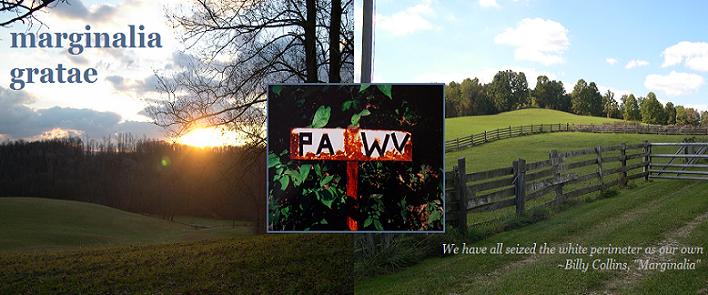Of late, I have been thinking more about my teaching philosophy, what grounds it, and how it informs my practice. This is ironic, perhaps, because I am not actually in the classroom this year, but I am, rather, serving in an administrative capacity for the program in which I taught for the last two years. I love the administrative work, and maybe it is because of the distance from classroom practice---or the regular encounter with other instructors' teaching philosophies and practices---that I am able to think more about my own.
My statement:
My teaching is informed by two positions: first, I believe that teaching, like all educational efforts, is an inherently rhetorical social practice. By this I suggest that teaching involves the dynamic interplay of ethos, pathos, and logos at a particular time and in a particular space (kairos) in order to persuade those involved to actively participate in the teaching-learning dynamic, for learning occurs only when those involved "buy-in" to the process.
It is my responsibility to construct an honest, responsive, and informed ethos that invites learners to engage; through preparedness, flexibility, reciprocity, temperance, empathy, and responsiveness to the unique circumstances each participant brings into the learning environment, pathos, I strive to foster a trusting and secure space where students will have the opportunity to explore their own and others’ knowledge and assumptions. I also believe in supplementing the learning that occurs in the group environment with regular, individualized instruction to ensure, to the best of my ability, that each student’s needs and expectations are being met, that each student and his or her work is recognized and respected. Finally, I invite my students to devise ways to make the course relevant to their own professional and personal development by selecting materials and designing assignments that offer a variety of approaches and perspectives, involve current events and figures, confront timely issues, and explore the implications of these perspectives and events; in this way, the content of the course, its logos, is balanced: it is both grounded and emergent.
Second, I believe that writing is a science, a craft, and an art. Through the introduction of method, form, and logical reasoning—as well as of rhetorical tropes, schemes, conventions, and modes—I attempt to reveal the science of writing, the "tools" that are available to writers and readers of texts. Never presented as prescriptive, but as techne that may be used by the writer as he or she chooses, these formal structures are effectively neutralized—a process that is explicitly discussed—giving writers power over them and over their writing; I have found that this approach lends students, especially, the confidence they often need to engage the writing process: what was once potentially dominating and oppressive becomes manageable and in service to the writer writing. It also provides an interpretive lens through which to view other texts. And, like a poet engages form, I charge students with the task of allowing their work to "find the form" that best compliments their ideas; this is the moment that the science meets the craft.
Writing is a deliberate act, and explicitly acknowledging writing as craft empowers writers to feel more in control of their prose. Further, it debunks the persistent myth of natural ability.
Finally, writing is an art. It is an act of creation and a symbolic extension of self. While this view is, admittedly, somewhat romanticized, when balanced against perspectives of writing that suggest both science and craft, it serves to allow students to invest themselves in their own writing, critique other texts critically and ethically, and take ownership of the writing act.
The relationship between these positions shapes the way I plan and design the courses I teach, the way I engage or attempt to engage the students with whom I work, the way I respond to events or challenges that arise in the learning environment, and the way I approach my scholarship. I see my role as one of facilitator but also as participant, and I recognize the absolute heterogeneity of interests, identities, ideologies, and investments at work in the learning dynamic.
I am also ever cognizant of my role and the role of the courses I teach in relation to the larger project of higher education, the specific mission of the course, and the departmental, programmatic, historical, and institutional contexts in which my teaching is situated. My job as an effective teacher, then, is to be aware of the nested missions and multiple stakeholders involved in the teaching transaction and to negotiate among them.
Thursday, October 4, 2007
Subscribe to:
Post Comments (Atom)


No comments:
Post a Comment